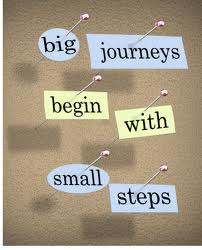The term “Residential Treatment Centers” covers a wide variety of places that people go to and stay at while receiving therapeutic treatment for some condition or issue. In the case of teens, they may also receive schooling. This article explains more.
What Is a Residential Treatment Center for Teens?
Residential Treatment Centers has two definitions. In one case, it is a very broad term and covers a variety of institutions at which teens may reside while receiving treatment. Those that treat teens often limit their population to that age group or-if they treat multiple age groups-separate the teens from younger and/or older clients. But the specific use of the term Residential Treatment Center is more specific.
Places where teens can go and reside while being treated include emotional growth and therapeutic boarding schools, wilderness programs and outdoor therapeutic programs, and small residential programs. Residential Treatment Centers is another type of treatment, a category along with the five just named. Each has its special focus. The mission of residential treatment centers is to treat teens with psychological and behavior issues that are serious, in a highly structured environment where both medication management and monitoring by health care professionals is available. Individual and group therapy are available, and recreation and education are provided as well. It is desirable that they be accredited by The Joint Commission (TJC), previously known as the Joint Commission on Accreditation of Healthcare Organizations (JCAHO) http://www.jointcommission.org/ or other, similar organizations.
Types of Residential Treatment Centers for Teens
Even though they have a similar purpose, Residential Treatment Centers for teens can have distinct admissions criteria and be guided by different therapeutic approaches. For example, Gray Wolf Ranch, a boys-only facility for young men aged 14 to 25, includes a day school program and provides transitional living for young men who are in the early stages of recovery from addiction. Its approach is based on the 12-Step principles and philosophy. Turn-About Ranch, on the other hand, is a coeducational program for teens 13 to 17 having issues with defiance, and enlists them in running a working ranch with an approach based on Christian values.
Pros and Cons of Residential Treatment Centers for Teens
The key to a successful residential treatment experience for a teen is a) only considering and choosing licensed and certified centers with an exemplary history to ensure that your teen is safe and well cared for and b) making a good match between the teen and the treatment facility and their approach. Teens with issues that the RTC is not equipped to deal may have less successful treatment experiences. Different treatment centers either welcome or prohibit family contact, and either approach may or may not be suitable. If there are triggers, temptations, or other issues in the teens environment, school, or home life, if these are not addressed along with the teen’s individual issues, even the best program may seem to be unsuccessful.
Finding Residential Treatment Centers for Teens
The Joint Commission offers a search for programs that it licenses and/or certifies here: http://www.qualitycheck.org/consumer/searchQCR.aspx#
The National Association of Therapeutic Schools and Programs both includes a search function http://www.natsap.org/programsearch.asp and also lists the accrediting and/or licensing agencies and the professional affiliations for each school, which gives other points to begin a search.
Sources
http://www.natsap.org/program_definitions.asp
http://www.natsap.org/program_details.asp?id=89
http://www.natsap.org/program_details.asp?id=36
